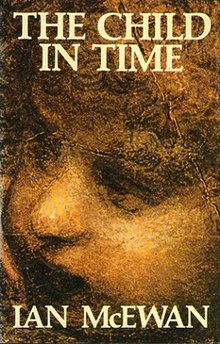
Ian Russell McEwan is a British novelist and screenwriter. In 2008, The Times featured him on its list of "The 50 greatest British writers since 1945" and The Daily Telegraph ranked him number 19 in its list of the "100 most powerful people in British culture".

The Children Act is a novel by the English writer Ian McEwan. It was published on 2 September 2014. The title is a reference to the Children Act 1989, a UK Act of Parliament. The book has been compared to Charles Dickens's Bleak House, with its similar settings, and opening lines.
Anne Tyler is an American novelist, short story writer, and literary critic. She has published twenty-four novels, including Dinner at the Homesick Restaurant (1982), The Accidental Tourist (1985), and Breathing Lessons (1988). All three were finalists for the Pulitzer Prize for Fiction, and Breathing Lessons won the prize in 1989. She has also won the Janet Heidinger Kafka Prize, the Ambassador Book Award, and the National Book Critics Circle Award. In 2012 she was awarded The Sunday Times Award for Literary Excellence. Tyler's twentieth novel, A Spool of Blue Thread, was shortlisted for the Man Booker Prize in 2015, and Redhead By the Side of the Road was longlisted for the same award in 2020.
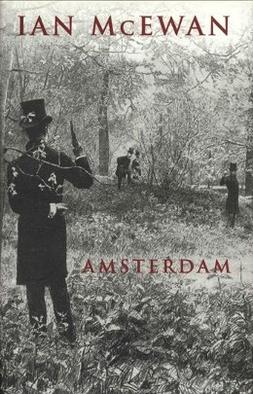
Amsterdam is a 1998 novel by British writer Ian McEwan, for which he was awarded the 1998 Booker Prize.

Saturday (2005) is a novel by Ian McEwan. It is set in Fitzrovia, central London, on Saturday, 15 February 2003, as a large demonstration is taking place against the United States' 2003 invasion of Iraq. The protagonist, Henry Perowne, a 48-year-old neurosurgeon, has planned a series of errands and pleasures, culminating in a family dinner in the evening. As he goes about his day, he ponders the meaning of the protest and the problems that inspired it; however, the day is disrupted by an encounter with a violent, troubled man.
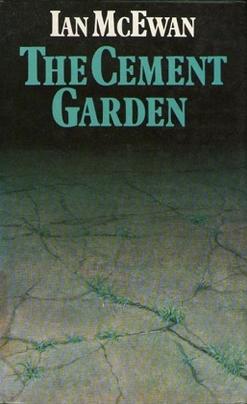
The Cement Garden is a 1978 novel by Ian McEwan. It was adapted into a 1993 film of the same name by Andrew Birkin, starring Charlotte Gainsbourg and Andrew Robertson. The Cement Garden has had a positive reception since its original publication.

Michiko Kakutani is an American writer and retired literary critic, best known for reviewing books for The New York Times from 1983 to 2017. In that role, she won the Pulitzer Prize for Criticism in 1998.
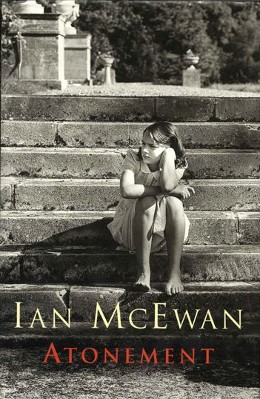
Atonement is a 2001 British metafictional novel written by Ian McEwan. Set in three time periods, 1935 England, Second World War England and France, and present-day England, it covers an upper-class girl's half-innocent mistake that ruins lives, her adulthood in the shadow of that mistake, and a reflection on the nature of writing.
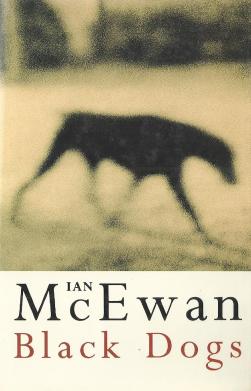
Black Dogs is a 1992 novel by the British author Ian McEwan. It concerns the aftermath of the Nazi era in Europe, and how the fall of the Berlin Wall in the late 1980s affected those who once saw Communism as a way forward for society. The main characters travel to France, where they encounter disturbing residues of Nazism still at large in the French countryside. Critical reception was polarized.

The Innocent is a 1990 novel by British writer Ian McEwan. It received positive reviews from book critics and is considered by some to be one of his best novels.

The Comfort of Strangers is a 1981 novel by British writer Ian McEwan. It is his second novel, and is set in an unnamed city. Harold Pinter adapted it as a screenplay for a film directed by Paul Schrader in 1990, which starred Rupert Everett, Christopher Walken, Helen Mirren and Natasha Richardson. The film is set in Venice.

The Gathering is a 2007 novel by Irish writer Anne Enright. It won the 2007 Booker Prize.
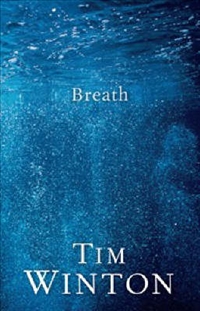
Breath is the twentieth book and eighth novel by Australian author Tim Winton. His first novel in seven years, it was published in 2008, in Australia, New Zealand, the UK, the US, Canada, the Netherlands, and Germany.
Dominic Cooke is an English director and writer.

The Daydreamer is a 1994 children's novel by British author Ian McEwan. Illustrated by Anthony Browne. The novel was first published by Jonathan Cape. It draws its plot directly from the Rankin/Bass movie, The Daydreamer (1966) in which a young boy daydreams and enters a world of Hans Christian Andersen stories. It is considered to be McEwan's first book for children, or second if taking into account the picture book Rose Blanche (1985). Critics praised McEwan's imagination, but noted that the book had high "sweetness-and-light levels".

Sweet Tooth is a novel by the English writer Ian McEwan, published on 21 August 2012. It deals with the experiences of its protagonist, Serena Frome, during the early 1970s. After graduating from Cambridge she is recruited by MI5, and becomes involved in a covert programme to combat communism by infiltrating the intellectual world. When she becomes romantically involved with her mark, complications ensue.
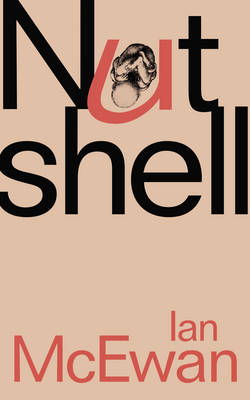
Nutshell is the 14th novel by English author and screenwriter Ian McEwan published in 2016. It alludes to William Shakespeare’s Hamlet and re-imagines the plot from the perspective of an eight-month-old unborn foetus in London in 2015.

The Child in Time is a British television film directed by Julian Farino, adaptation of the 1987 novel of the same name by Ian McEwan. The film premiered on BBC One on Sunday 24 September 2017 and stars Benedict Cumberbatch.
Aida Edemariam is an Ethiopian-Canadian journalist based in the UK, who has worked in New York, Toronto and London. She was formerly deputy review and books editor of the Canadian National Post, and is now a senior feature writer and editor at The Guardian in the UK. She lives in Oxford. Her memoir about her Ethiopian grandmother, The Wife's Tale: A Personal History, won the Ondaatje Prize in 2019.

Circe is a 2018 novel by American writer Madeline Miller. Set during the Greek Heroic Age, it is an adaptation of various Greek myths, most notably the Odyssey, as told from the perspective of the witch Circe. The novel explores Circe's origin story and narrates Circe's encounters with mythological figures such as Hermes, the Minotaur, Jason, and Medea and ultimately, her romance with Odysseus and his son Telemachus.
